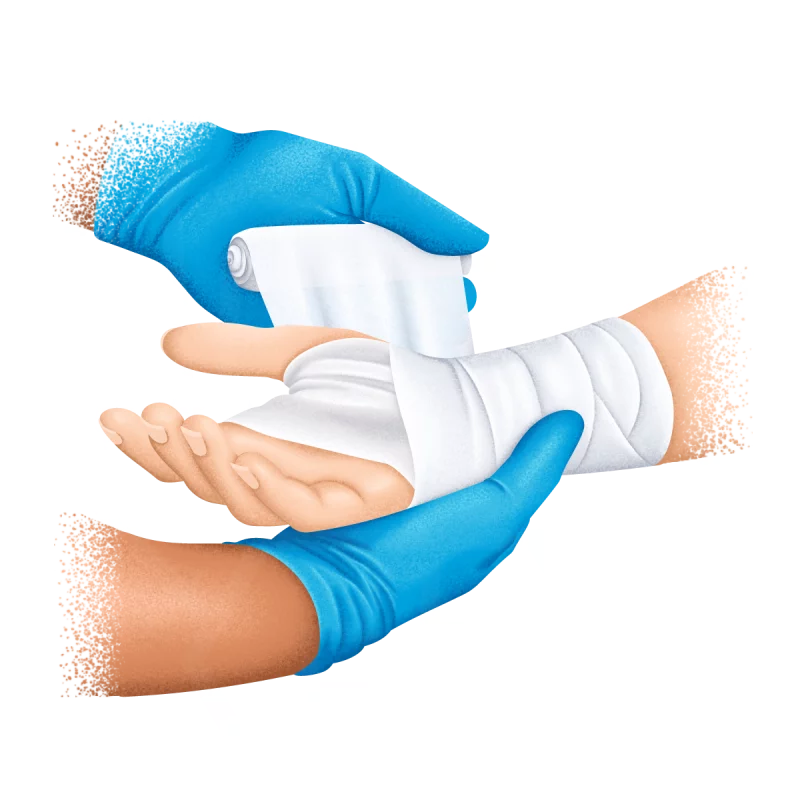October 18, 2024
RESIDENTIAL INTERMEDIATE RESOURCES
CPR and First Aid Standards
Residential Intermediate Resources (IR) play an important role in Quebec's health and social services network, providing a safe, stable living environment for people in need of support. IRs are generally intended for people who can no longer live independently in their own homes, but who do not require institutional accommodation. These resources are subject to strict first-aid standards to ensure the safety and well-being of users. This article explains what as IR is, its first aid obligations, and how the Académie Saint-Bernard can help meet these requirements with its “Secouriste - Grand public général (8h)” training course.
WHAT'S A RESIDENTIAL IR?
A residential IR is a special type of intermediate resource in Quebec, designed to provide an adapted living environment for people requiring additional support in their daily lives. IRs can accommodate different types of users, including the elderly, people with physical or intellectual disabilities, or people living with mental health problems.
IRs are operated by individuals or organizations, often in a main residence, where support and assistance services are offered to help users maintain or improve their quality of life. They are distinguished from other types of intermediate resources by their community-based approach and their ability to provide an environment that is as close as possible to a family living environment.
FIRST AID STANDARDS FOR RESIDENTIAL IRS
IRs must comply with specific first-aid standards to ensure user safety. These standards include requirements for first-aid training and the availability of trained personnel on site. Here are the main requirements:
- First aid training
Anyone wishing to operate an IR must have up-to-date training in cardiopulmonary resuscitation (CPR) and general first aid, provided by a recognized organization. This training ensures that on-site responders have the necessary skills to react quickly and effectively in the event of a medical emergency.
- Constant presence of a trained person
It is mandatory that at least one person trained in CPR and general first aid be present at all times in the IR living environment. This requirement ensures that, in the event of an emergency, immediate action can be taken. An exception to this rule applies when the person present in the living environment is there only occasionally and for a short time.
- Specific exemptions
Although first aid requirements are rigorous for IRs, certain exemptions may apply to Family-Type Residences (FTRs) with exercise limitations, such as local foster families or FTRs in aboriginal communities. For the latter, first aid training remains highly recommended, but is not always mandatory.
These standards are designed to ensure that IR users benefit from a safe environment, where staff are able to react appropriately in the event of incidents, thus contributing to the quality of life and safety of all.
ACADÉMIE SAINT-BERNARD'S “FIRST AID - GENERAL PUBLIC (8H)” TRAINING COURSE
To help intermediary host resources meet first-aid requirements, Académie Saint-Bernard offers a comprehensive, customized training program: “First aid - General public (8h)”. This training is specially designed to prepare IR responders to deal with medical emergencies and potential accidents. This training includes:
- CPR techniques
Participants learn CPR techniques on adults, children and infants, with training on the use of an automated external defibrillator (AED).
- First aid for injuries
The program covers emergency care for cuts, burns, fractures and other common injuries.
- Responding to medical emergencies
Participants are trained to respond to situations such as heart attacks, strokes, severe allergic reactions and choking.
- Accident prevention
Training includes practical tips for minimizing the risk of accidents in the living environment, to ensure a safe environment for users.
This eight-hour training course is designed to meet the specific needs of IRs, ensuring that personnel have the skills they need to respond quickly to emergencies. It is recognized by regulatory bodies and complies with the latest first-aid standards.
WHY CHOOSE ACADÉMIE SAINT-BERNARD?
Académie Saint-Bernard stands out for its commitment to providing quality training tailored to the needs of intermediate resources. By choosing “First aid - General public (8h)” training, residential IR managers can ensure that their personnel are well prepared to respond to emergency situations, and that first aid requirements are fully met.
What's more, Académie Saint-Bernard offers customized solutions for IRs, providing tailor-made training that takes into account the specifics of each environment and the particular needs of users. These courses can be delivered on-site, at the Académie's premises, or in a hybrid format, offering greater flexibility for participants.
CONCLUSION
Residential intermediate resources are an essential part of Quebec's support network, providing a safe living environment for people in need of additional care. First aid standards are designed to ensure that users benefit from an optimum level of safety, by ensuring that staff are trained to react effectively in the event of an emergency.
With Académie Saint-Bernard's “First aid - General public (8h)” training course, IRs can easily meet regulatory requirements and provide an even safer environment for their users. This comprehensive and recognized training enables them to comply with first aid standards, while improving the quality of care and services provided. For residential IR managers, it's an opportunity to ensure the safety and well-being of residents, while complying with legal and professional obligations.
Source
Ministère de la Santé et des Services sociaux. 2013. « Guide des responsabilités des agences de la santé et des services sociaux au regard des ressources intermédiaires et des ressources de type familial ». https://publications.msss.gouv.qc.ca/msss/document-000300/?&date=DESC
